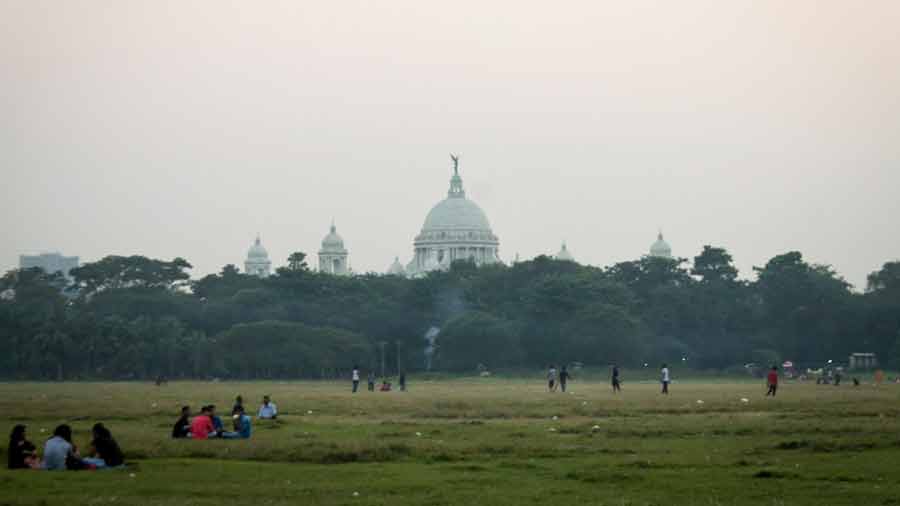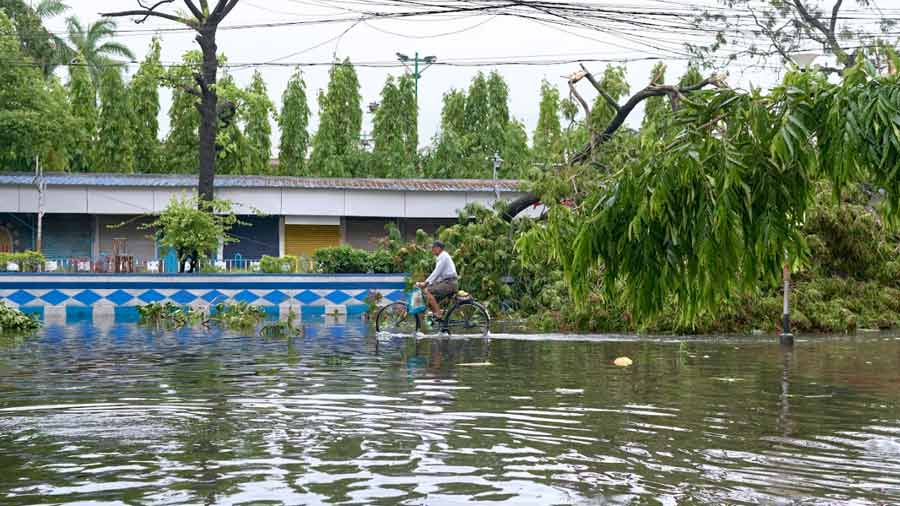Bengal has improved by two places its ranking among the states in terms of sustainable development but is behind the national average on the majority of parameters, including key ones like ‘climate action’ and ‘sustainable cities and communities’ (see chart).
The sustainable development goal (SDG) score is calculated on the basis of scores in 17 key areas identified by the UN in 2015. The original aim was to reach the sustainability goal in 2030 but the pandemic is likely to push back the finish line.
In the global sustainability score, India has slipped three places, from 117 to 120, among 192 countries in 2021 despite improving its total score from 60 in 2020 to 66 in 2021.
In India, the sustainability scores of the states are calculated by the Delhi-based thinktank, Centre for Science and Environment (CSE), on the basis of data provided by the government.

Maidan ground, Kolkata. Bengal has also not done well on the parameter ‘life on land’ — which assesses how well a state has preserved forests and other natural ecosystems iStock
The findings for 2021 were published in the report, State of India’s Environment 2022, which was released by Union environment, forest and climate change minister, Bhupender Yadav, alongside environmentalist Sunita Narain on Tuesday on the sidelines of the Anil Agarwal Dialogue, being organised by the CSE.
In the report, Bengal occupies 11th position among the 28 states with a score of 62. In 2020, Bengal was 13th with a score of 60.
Bengal did poorly in key environmental areas like ‘climate action’ — scoring 39 against a national average of 54 — and ‘sustainable cities and communities’ — scoring 45 against a country average of 79, a massive slide from a score of 76 in 2019.
A UN report on climate change, released on February 28, pointed out that lack of climate action and vulnerability of cities to erratic climatic trends would be major points of concern in near future.
Bengal has also not done well on the parameter ‘life on land’ — which assesses how well a state has preserved forests and other natural ecosystems — scoring 53 against a national average of 66, once again a downslide from a score of 88 in 2019. In ‘gender equality’, Bengal has scored 41 when the national average is 48.

Aftermath of cyclone Amphan at Deshapriya Park in south Kolkata. Lack of climate action and vulnerability of cities to erratic climatic trends would be major points of concern in near future iStock
Among the 15 parameters considered — not enough data was available to assess SDG 14 and 17— Bengal was behind the national averages in 11.
“We have built infrastructure for a long time in this country. Now we are focusing on redistributing the resources of the state to the poor,” said Yadav, while releasing the report.
Narain, director general of CSE, said that “both Covid-19 and climate change are the result of our dystopian relationship with nature… call this the revenge of nature”.
“None of the state governments, including that of Bengal, take the SDG score seriously and modify their developmental plans accordingly,” said Nilanjan Ghosh, an environmental economist and director of the Kolkata centre of the thinktank, Observer Research Foundation.
Ghosh pointed out that the state generally remains disconnected from issues like climate action and city sustainability, which explains the poor scores on those parameters. Building of physical infrastructure, like roads, in states like Bengal with significant border area might have impacted the score on the parameter ‘life on land’.
